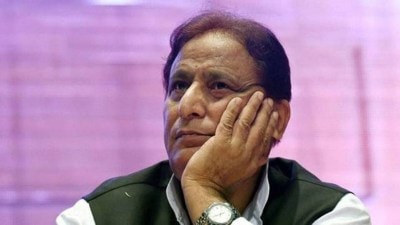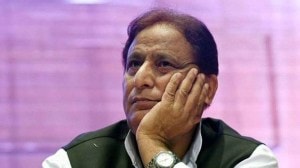Satyagraha for black and brown
Mahtma Gandhi is rarely remembered for the first 21 years of his adult life (1893-1914) spent in South Africa. People also forget his strugg...

Mahtma Gandhi is rarely remembered for the first 21 years of his adult life (1893-1914) spent in South Africa. People also forget his struggle against racism in that country, and his contribution to a process that finally saw the dismantling of apartheid.
On June 9, 1893, Mohandas K. Gandhi, a young and not very successful lawyer arrived in Pretoria, the capital of the South African Republic, to do some clerical work in connection with a large lawsuit of Dada Abdulla & Co, a Durban-based company. Abdulla needed a law clerk, literate in Gujarati and English, to help his attorney, Albert W. Baker. Gandhi had, initially, intended to stay there for no more than a year but the situation of the Indian community there so outraged his moral sensibilities that his conscience would not allow him to depart.
In 1893, White settlers decided that that indentured Indian labourers should no longer be permitted to remain in Natal/South Africa at the conclusion of their contracts. They were also determined to prevent Indians from voting and they sought to impede the future immigration of free Indians as well as the licensing of Indians to conduct business in Natal.
After landing in Durban, Gandhi immediately encountered that wall of anti-Indian feeling. Being a man of considerable pride, he fought back. On his first day in court, he wore a pugri (turban). When ordered to remove it by the judge, he refused to do so and left the chamber in protest. Then, of course, was that famous Pietermaritzburg incident. The humiliation he had to face made him reconsider his decision to return to India. Since he was in South Africa for purely professional reasons, he could very easily have returned to India. His decision to stay back and fight against injustice can then be regarded as a crucial step in his political and moral evolution.
Some critics, however, have asserted that he was not free from racial prejudice and had differentiated between Indian satyagraha prisoners and the native Blacks lodged in jail. But there is plenty of evidence in his writings to indicate that even if Gandhi had nurtured any such prejudice, he fast outgrew it. Nelson Mandela’s comment on this is pertinent. He had pointed out that Gandhi was reacting, not against African natives in general, but to criminalised natives.
In his speech at the YMCA in June 1908, Gandhi in fact stressed the complementary nature of various cultures and refuted the notion that different civilisations could not co-exist. It was not racial prejudice but political realism that guided Gandhi in limiting his agenda to addressing the problems of his countryman. In his journal, Indian Opinion, he wrote that “each racial group should fight its own battle; but to be supportive to one another”. He was, despite his Indian-centric focus, concerned about the problems of Africans. For instance, he backed the demand of the Africans for franchise in Transvaal and the Orange River Colony, and was deeply concerned about the insidious moves of the Whites that threatened the right of Africans to land. He also denounced the jury system in South Africa.
It was difficult for us today to imagine the odds against which he fought. This was the heyday of European imperialism, when their domination over the coloured races was accepted almost as a fact of nature. In 1897, when Gandhi was 27, he was nearly lynched by a white mob in Durban. To make matters worse, the Indians in Natal and Transvaal were a socially and economically heterogenous community. It was not an easy task to infuse a spirit of solidarity into Muslim merchants, their Hindu and Parsi clerks, and the semi-slave indentured labourers from Madras. Gandhi’s strategy was to organise Indian migrants, present their case on its merits, oppose the colonial regime and, at the same time, seek the support of world opinion. He based his case against racial discrimination on what he claimed was the inherent rights of British Indians, guaranteed to them by Queen Victoria’s proclamation of 1858.
Also, if the Black population did not figure in Gandhi’s campaign, it was partly because it didn’t suffer from the disabilities against which the Indians were protesting, such as the tax of three pounds on indentured labourers that had turned them into semi-slaves. Moreover it is doubtful whether, at the turn of the century, the Black population would have readily accepted a young Indian barrister as a leader. In February 1936, Gandhi explained to a visitor that he had deliberately not invited the Blacks to join the movement: “They would not have understood the technique of our struggle nor could they have seen the purpose and utility of our non-violence.”
What Gandhi did achieve for both Asians and Blacks was to make the first dent on the armour of White racialism. It seems that it was a sound instinct that guided the young Gandhi to wage his battle against racialism on a limited front. If he had clashed head-on with the Boer-British combine, he would have been bundled out of South Africa and the cause of racial equality would have suffered. There is evidence that by 1909 Gandhi has realised the inherent limitation of the Indian struggle in South Africa. The satyagraha campaign had its ups and down and he badly needed a successful conclusion of the struggle in Transvaal, not only for its own sake, but also as a prelude to his return to India. Gandhi seems to have sensed that if European colonialism could be ended, racism would also go.
Gandhi left South Africa in 1914, but he blazed a trail that coming generations were to follow. The constitution of the South African National Native Congress, later renamed the African National Congress (ANC), endorsed “passive action”. Which only went to underline the decisive significance Gandhi’s thought and action held for South Africa.
The writer is a scholar in Gandhian studies
In
the name of Mahatma, Cong youth attack Vice Chancellor
Mahatma
ignored: Opp walks out
Photos



- 01
- 02
- 03
- 04
- 05




























